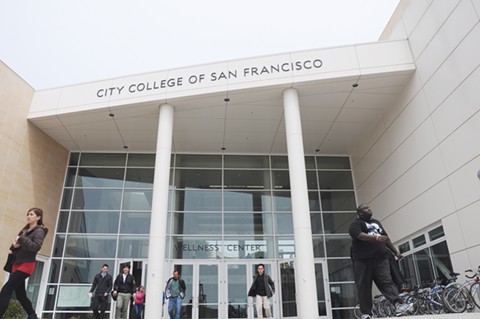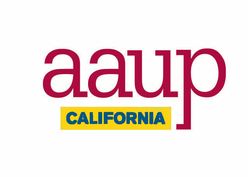http://www.sfexaminer.com/sanfrancisco/accrediting-commission-throws-ccsf-a-lifeline/Content?oid=2820925
By Laura Dudnick
ldudnick@sfexaminer.com
· The body overseeing CCSF’s accreditation announced a proposal that would give the school more time to comply with requirements it needs to fill to stay alive.
After much uncertainty for California’s largest community college, a ray of hope has been cast upon embattled City College of San Francisco as it fights to regain accreditation.
On Wednesday, the Accrediting Commission for Community and Junior Colleges, which last summer voted to revoke CCSF’s accreditation effective this July, proposed a new policy that would give CCSF more time to meet accrediting requirements.
Under the proposed policy, an institution that lost accreditation for failing to meet ACCJC standards could apply for “accreditation restoration status.”
The policy, which will undergo a public-comment period and must be approved by the U.S. Department of Education, could give CCSF the time it needs to come into full compliance with the ACCJC.
School leaders have told the commission they need at least 18 more months to reach that goal.
“While ACCJC concern about CCSF noncompliance remains, the commission also recognizes the need to balance the impact of such a decision on students with its commitment to holding CCSF and all postsecondary institutions accountable in meeting core standards,” read an ACCJC statement released Wednesday.
Restoration differs from candidacy status, which the commission had previously urged CCSF to seek. Candidacy would have required CCSF to withdraw its accreditation, a move Chancellor Art Tyler refused. With restoration status, however, a school would remain accredited.
Tyler told The San Francisco Examiner on Wednesday that he needed more time to digest the letter before he could comment.
Another CCSF official, spokesman Jeff Hamilton, said no decision on possibly applying for the special status has been made. But he was pleased with the development.
“It seems that all the hard work of the City College community and our supporters is beginning to pay off, but the devil is in the details and we’re studying them carefully,” Hamilton said.
CCSF supporters were also generally optimistic about the news.
“We are encouraged that the commission appears willing to provide City College with a path forward to complete its recovery,” Paul Feist, a spokesman for the California Community Colleges Chancellor’s Office, said in a statement.
“We want to be assured, however, that any action taken removes the immediate threat of loss of accreditation and allows City College adequate time to come into full compliance,” he said.
Tim Killikelly, president of CCSF’s faculty union American Federation of Teachers Local 2121, agreed that the ACCJC proposal appears to be positive, but cautioned against celebrating just yet.
“The uncertainty still remains and that’s not good for the college,” he said.
The proposed policy calls for a two-week public-comment period, concluding June 25. The ACCJC will then issue a final policy, contingent upon written confirmation from the U.S. Department of Education that the proposal does not violate federal law.
The policy emerged following the commission’s final scheduled meeting of the year, held last week in Sacramento. Wednesday’s announcement comes on the heels of weeks of politicians calling upon the ACCJC to give CCSF more time to come into compliance with commission standards.
In January, a judge barred ACCJC from taking any action on accreditation until a lawsuit filed by The City is resolved.
Losing accreditation would effectively force CCSF to close.



 RSS Feed
RSS Feed